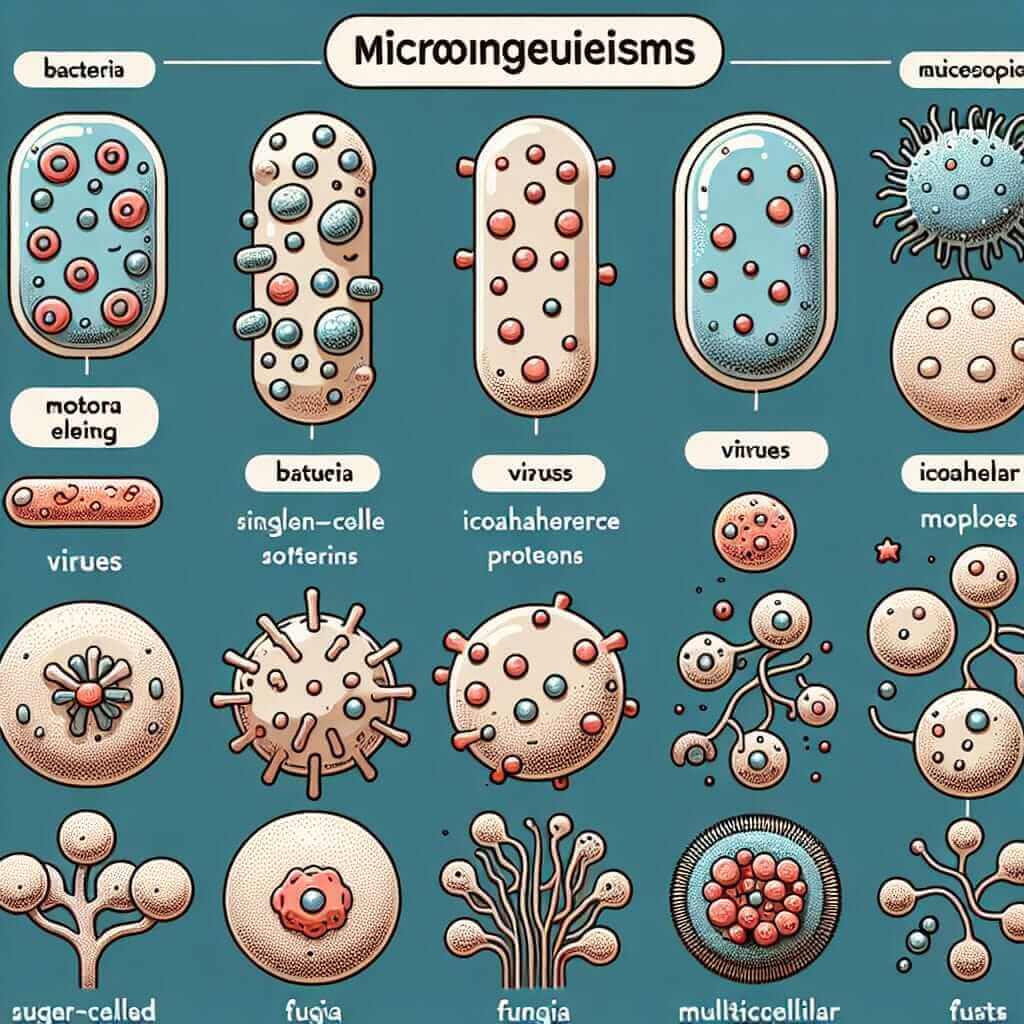The IELTS exam often features topics related to health and medicine, making it crucial for test-takers to possess a robust vocabulary in these areas. One such frequently appearing term is “microorganism.” Understanding its meaning, usage, and related vocabulary is key to achieving a high score, especially in the Listening and Reading sections.
What Does “Microorganism” Mean?
Microorganism (noun) /ˌmaɪkroʊˈɔːrɡənɪzəm/ – a microscopic organism, especially a bacterium, virus, or fungus.
Here are some synonyms and related terms:
- Microbe: (noun) /ˈmaɪkroʊb/ – a synonym for microorganism.
- Bacterium (noun) /bækˈtɪriəm/ (plural: bacteria) – a type of single-celled microorganism that lacks a nucleus.
- Virus (noun) /ˈvaɪrəs/ – a microscopic infectious agent that replicates only inside the living cells of an organism.
- Fungus (noun) /ˈfʌŋɡəs/ (plural: fungi) – any member of a kingdom of organisms that includes yeasts, molds, and mushrooms.
- Pathogen (noun) /ˈpæθədʒən/ – a bacterium, virus, or other microorganism that can cause disease.
Example:
“The human body is home to trillions of microorganisms, many of which play beneficial roles in digestion and immunity.”
Microorganisms in IELTS
The term “microorganism” and its related vocabulary can appear in various contexts within the IELTS exam.
Listening Section:
You may encounter lectures or conversations about microbiology, disease transmission, or the importance of hygiene.
Example:
An audio clip discussing the role of bacteria in the nitrogen cycle.
Reading Section:
You might come across passages about scientific discoveries, healthcare advancements, or the history of epidemics.
Example:
An article explaining how vaccines work by triggering an immune response to specific viruses.

Using “Microorganism” in Your IELTS Responses
Here’s how you can effectively use “microorganism” and its related vocabulary in your answers:
Speaking Part 3:
- Examiner: “What are some of the biggest challenges facing the healthcare industry today?”
- You: “One major challenge is the emergence of antibiotic-resistant bacteria. These microorganisms pose a significant threat to global health, as they are becoming increasingly difficult to treat.”
Writing Task 2:
- Topic: “Some people believe that the widespread use of antibiotics is leading to more health problems. To what extent do you agree or disagree?”
- Essay excerpt: “While antibiotics have revolutionized medicine, their overuse has contributed to the rise of antibiotic resistance. This occurs when bacteria mutate and develop the ability to survive exposure to these drugs, rendering them ineffective in combating infections.”
Collocations with “Microorganism”
- Beneficial microorganisms: “Yogurt contains beneficial microorganisms that aid digestion.”
- Harmful microorganisms: “Washing your hands frequently helps to remove harmful microorganisms that can cause illness.”
- Microbial growth: “Refrigeration helps to slow down microbial growth in food.”
- Microbial communities: “Scientists are studying the diverse microbial communities that exist in the human gut.”
- Microbial contamination: “Food poisoning can occur due to microbial contamination.”
Idioms and Phrases:
While there are no direct idioms using “microorganism,” you can use related phrases:
- “A bug going around”: This informal expression refers to a contagious illness spreading quickly through a population.
- “Fight off an infection”: This phrase describes the body’s natural defense mechanisms working to eliminate harmful microorganisms.
Conclusion
Expanding your vocabulary related to health and medicine, including “microorganism” and its synonyms, will significantly enhance your ability to understand and respond to questions in the IELTS exam. By practicing the usage of these terms in context, you’ll be better equipped to achieve your desired score. Remember to explore other relevant vocabulary within the realm of health and medicine to further strengthen your lexical range.